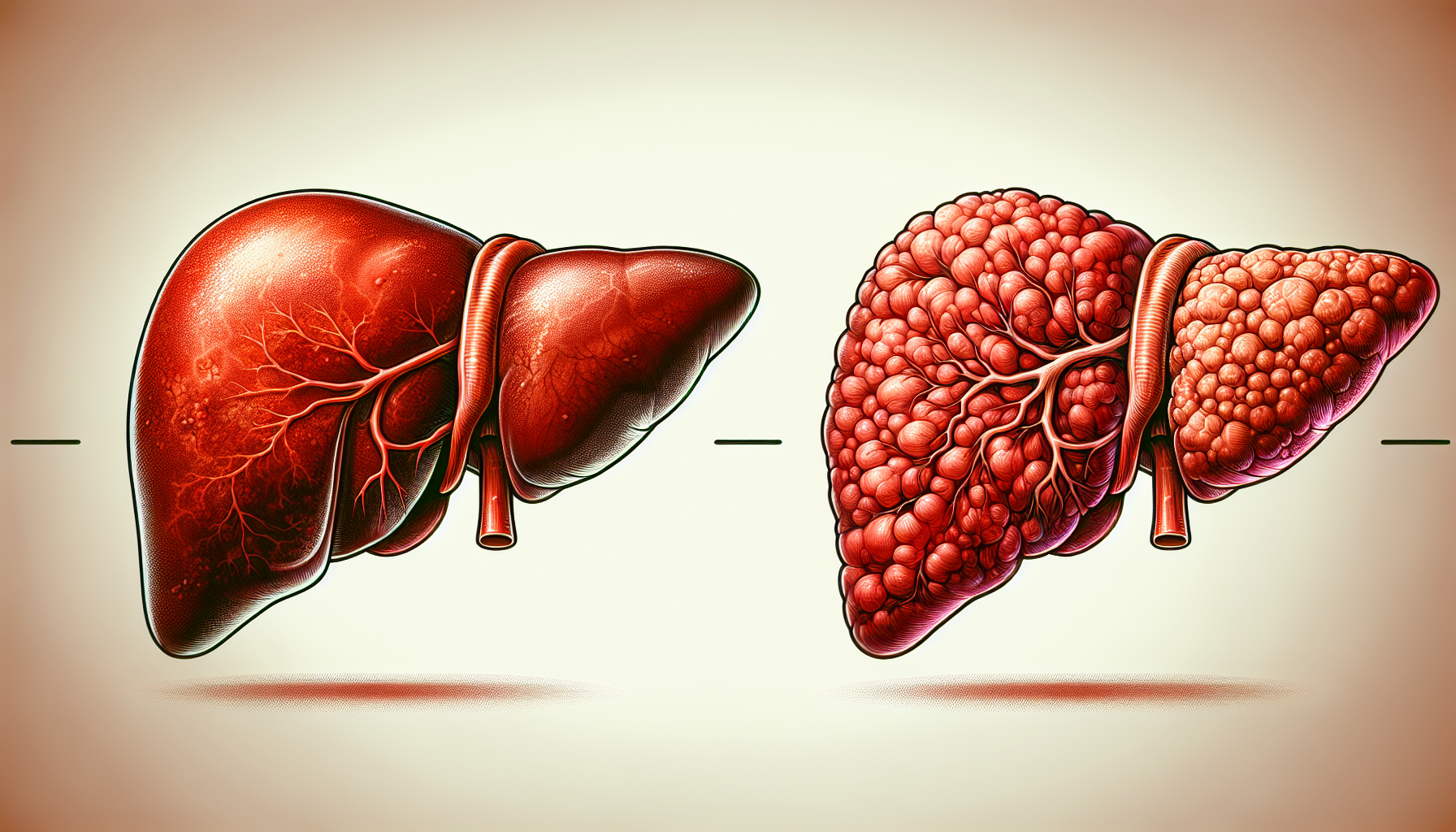Chronic liver disease is a significant health concern that can profoundly affect digestion and overall health. The liver, a vital organ in the human body, plays a crucial role in processing nutrients, filtering toxins, and producing bile necessary for the digestion of fats. When chronic liver disease takes hold, these essential functions can be compromised, leading to a cascade of digestive problems.
The Liver’s Role in Digestion
Before delving into the effects of chronic liver disease, it’s essential to understand the liver’s role in digestion. The liver produces bile, which is stored in the gallbladder and released into the small intestine to aid in the breakdown and absorption of dietary fats. It also processes nutrients absorbed by the intestines, converting them into forms that the body can use. Additionally, the liver detoxifies harmful substances and metabolizes drugs, contributing to the safe and effective use of medications.
Chronic liver disease, which may result from conditions like hepatitis, excessive alcohol consumption, or non-alcoholic fatty liver disease, disrupts these processes. When the liver’s health is compromised, every aspect of digestion and nutrient utilization can be affected.
Digestive Symptoms of Chronic Liver Disease
Patients with chronic liver disease often experience a range of digestive symptoms. These may include:
- Jaundice, or yellowing of the skin and eyes, due to the buildup of bilirubin
- Altered bowel habits, such as diarrhea or constipation
- Nausea and vomiting
- A decreased appetite, often leading to weight loss
- Swelling in the abdomen, known as ascites, due to fluid buildup
- Easy bruising or bleeding, as a result of impaired production of clotting factors
These symptoms occur as the liver’s ability to perform its functions is diminished, highlighting the organ’s importance in maintaining digestive health.
Nutrient Malabsorption and Metabolism
One of the most critical consequences of chronic liver disease is the malabsorption of nutrients. The liver’s impaired function can lead to deficiencies in essential vitamins and minerals, such as vitamin B12, iron, and vitamin D. Compromised bile production also affects the absorption of fat-soluble vitamins (A, D, E, and K), leading to further nutritional deficiencies.
For an in-depth look at the role of nutrients in supporting liver health, consider reading about Dietary Strategies to Manage Hyperacidity and the Benefits of Omega-3 Fatty Acids for Digestive Health, both of which provide valuable insights into maintaining a healthy liver through diet.
The Impact of Toxins and Medications
The liver’s ability to detoxify is a linchpin in maintaining a healthy body. When chronic liver disease affects this detoxification process, patients may become more sensitive to medications and environmental toxins. Additionally, the metabolism of drugs can be unpredictable, sometimes necessitating adjustments in dosages to avoid adverse effects.
A deeper understanding of this can be found in the article on How to Use Dietary Supplements to Aid Digestive Health Recovery, which highlights the importance of careful supplementation in the context of compromised liver function.
External Resources Supporting Liver and Digestive Health
To further explore the intricacies of liver and digestive health, several high-quality, niche resources offer valuable information:
- The American Liver Foundation provides comprehensive resources on various liver diseases, their impact on digestion, and management strategies.
- For those interested in the scientific aspects, The National Institute of Diabetes and Digestive and Kidney Diseases offers a wealth of research-based information on liver disease and its digestive implications.
- Liver International publishes peer-reviewed studies focusing on liver health, including the effects of chronic liver conditions on the digestive system.
Strategies for Managing Digestive Health with Chronic Liver Disease
Managing digestive health when living with chronic liver disease involves a multipronged approach:
-
Dietary Adjustments: Adopting a liver-friendly diet, low in saturated fats and high in fiber, can support liver function and promote digestive health. Special attention should be paid to the intake of proteins and complex carbohydrates to prevent malnutrition.
-
Medication Management: Working closely with healthcare professionals to adjust medication dosages can mitigate the risks associated with impaired drug metabolism.
-
Lifestyle Modifications: Reducing alcohol consumption, quitting smoking, and engaging in regular physical activity can all contribute to improved liver and digestive health.
-
Supplemental Support: Under medical supervision, certain supplements may be beneficial in supporting liver function and compensating for nutrient malabsorption.
Conclusion
Chronic liver disease presents significant challenges to digestive health, but with careful management, individuals can mitigate many of its effects. By understanding the liver’s role in digestion, recognizing the symptoms of liver disease, and employing targeted strategies, individuals can work towards maintaining their digestive health even in the face of chronic liver conditions.
Remember, managing chronic liver disease is a journey that requires a comprehensive approach, including diet, lifestyle changes, and possibly medication adjustments. It’s crucial to consult with healthcare providers to tailor a plan that is specific to individual needs and conditions. By doing so, one can navigate the complexities of chronic liver disease and maintain as much digestive health as possible.



